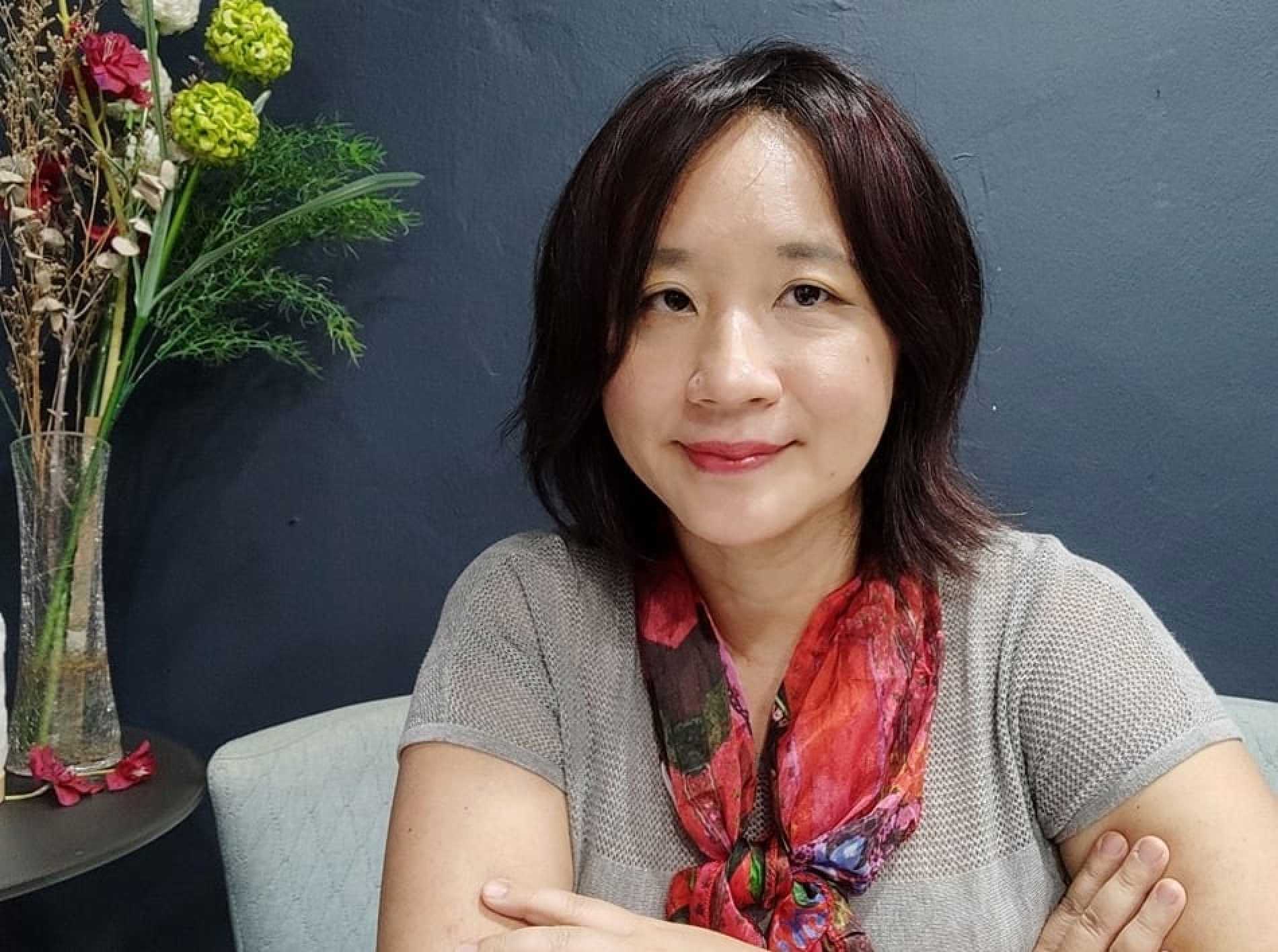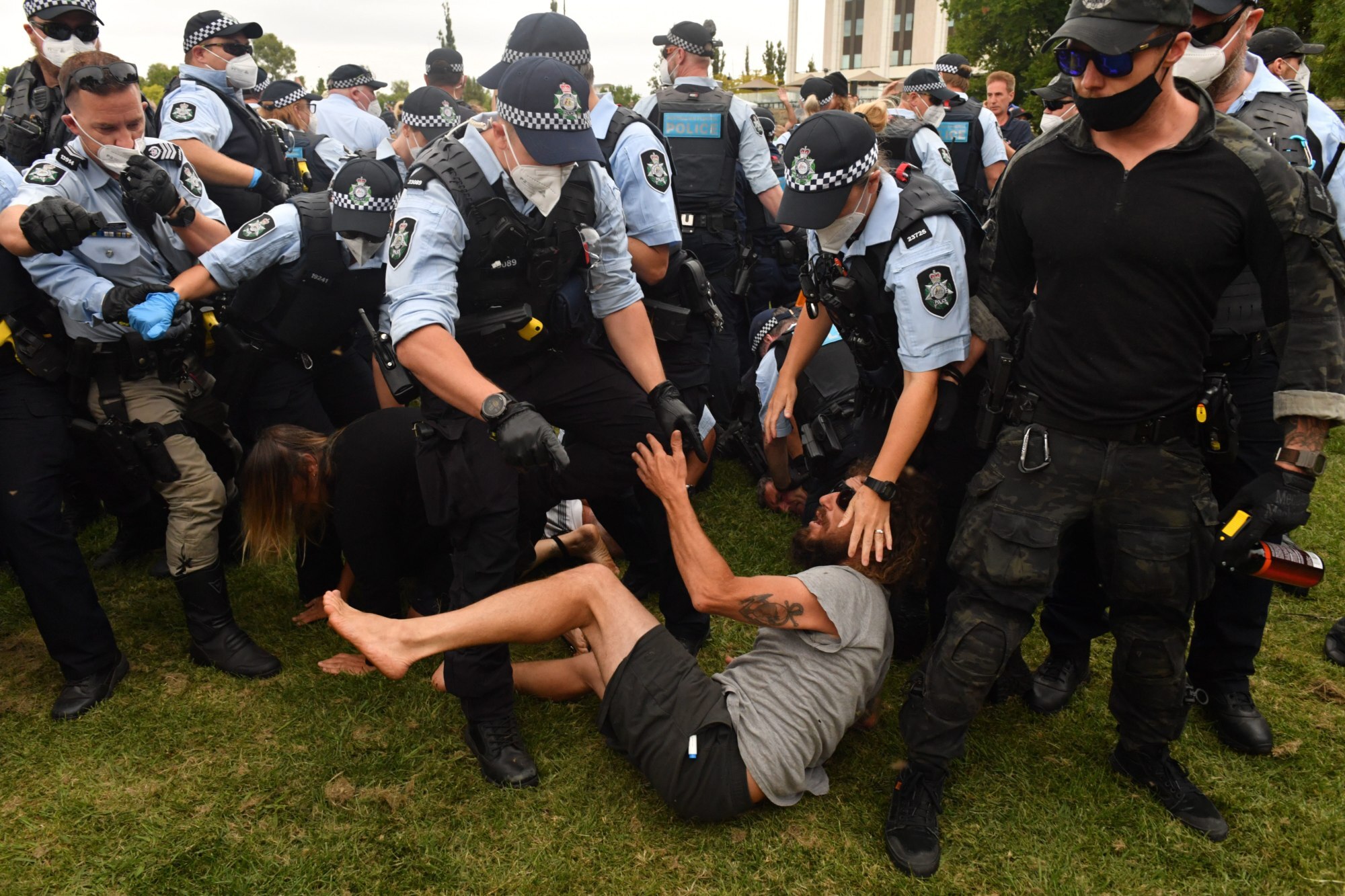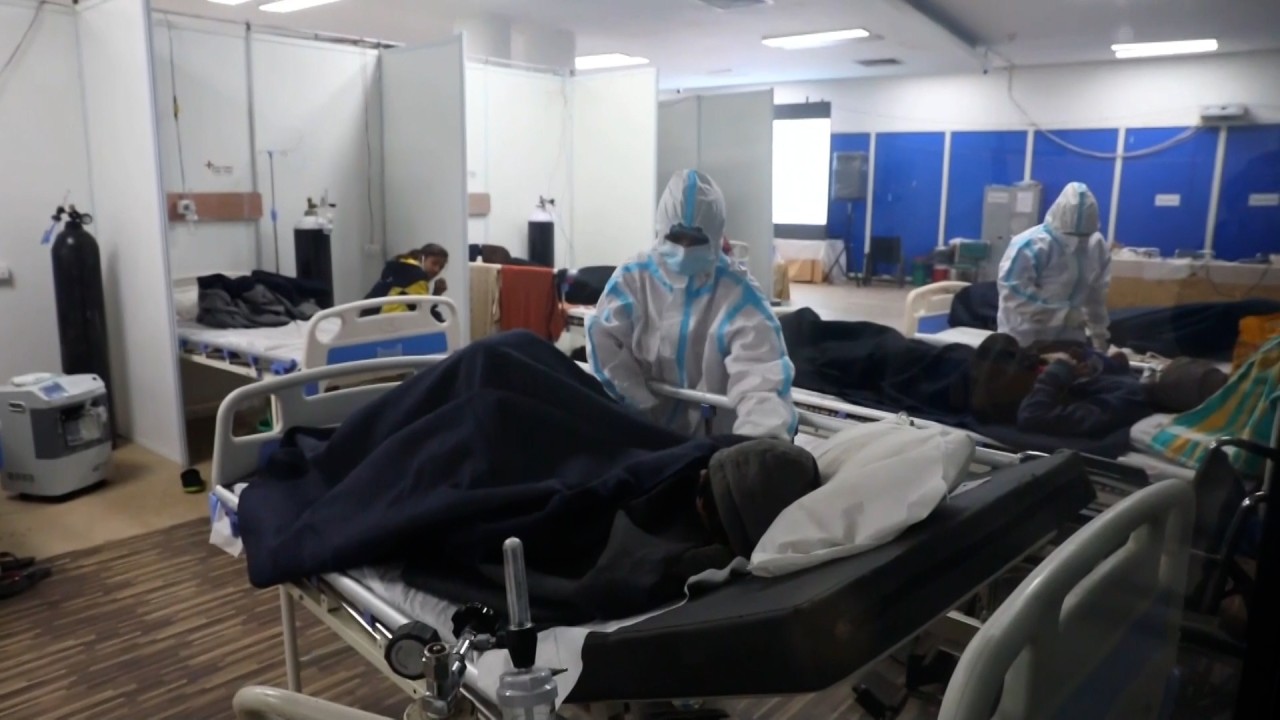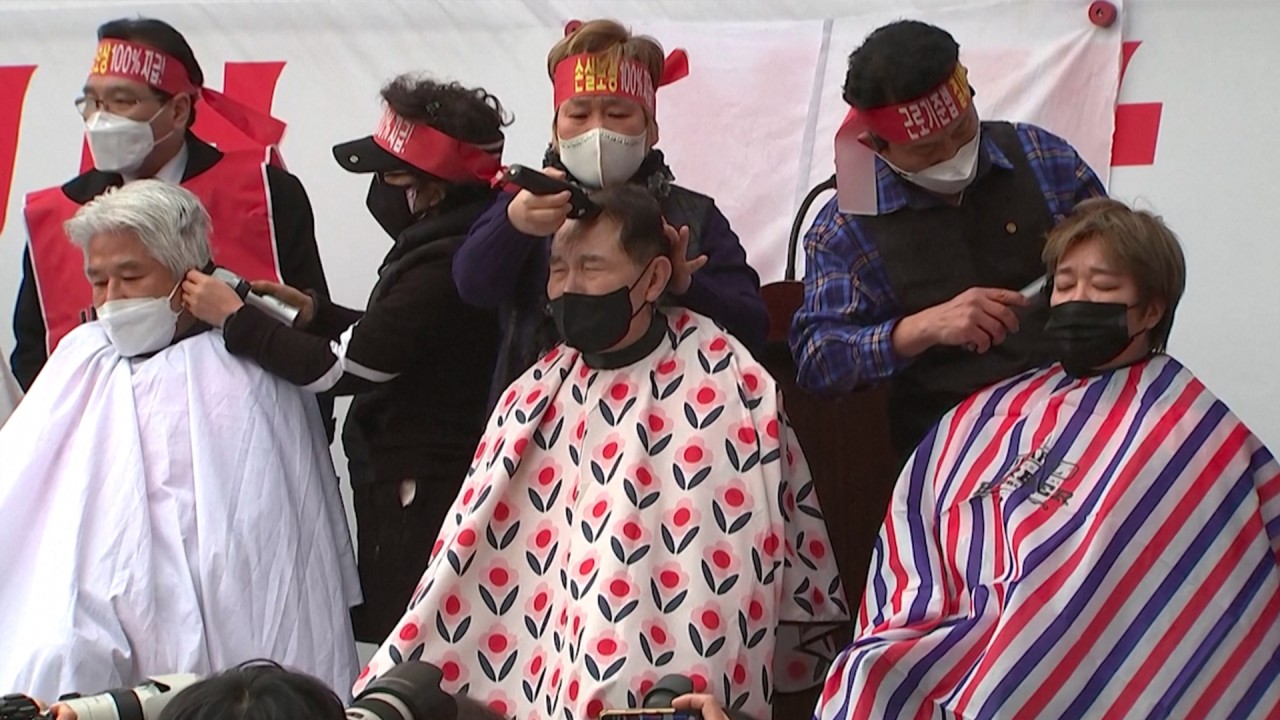
Coronavirus: India deaths surpass 500,000; South Korea keeps curbs as Omicron sends cases soaring
- Health experts say the figure was breached last year but obscured by inaccurate surveys and unaccounted dead in India’s hinterlands
- Elsewhere, Japan is planning to relax its months-long border control measures that have irked business executives
The country, which has the fourth-highest tally of deaths globally, recorded 400,000 fatalities by July last year after the devastating outbreak from the Delta variant of the coronavirus, according to official data. Some experts believe the figures were much higher.
“Our study published in the journal Science estimates 3 million Covid deaths in India until mid-2021 using three different databases,” Chinmay Tumbe, an assistant professor at the Indian Institute of Management, Ahmedabad who co-authored the study, said.
Last month, the Indian government dismissed the study as baseless in a notification saying there is a robust system of birth and death reporting.
India’s states record deaths from Covid-19 after collating data from their districts. In the last few months, several states have updated the number of deaths, some under pressure from the country’s top court. In most instances, authorities said there were lapses due to delayed registrations and other administrative errors.
India is currently in the midst of a third wave of the coronavirus led by the Omicron variant, which some top experts say is already in community transmission although federal officials say most cases are mild.
Last month, the government eased testing norms and told states to drop mandatory testing for contacts of confirmed cases unless they were old or battling other conditions. But, with the number of tests falling, the government issued a revised circular warning states they would miss the spread of the virus.
But, as many infected people took the option of not testing at all, total infection numbers may not reflect the extent and severity of cases, said Gautam Menon, a professor of physics and biology at Ashoka University near the capital who has been tracking the spread of the virus.
According to official figures, India’s overall number of Covid-19 infections has reached 41.95 million, the second-highest globally behind the US.
India’s cumulative tally of 500,055 deaths on Friday included 1,072 fatalities reported over the last 24 hours, according to the federal health ministry. Out of this, 335 deaths were reported from the southern state of Kerala that has, for weeks, been updating data with deaths from last year.
Kerala, with less than 3 per cent of India’s 1.35 billion population, accounts for nearly 11 per cent of the total deaths reported in the country.
“Some states such as Kerala are recording their backlog deaths under judicial pressure, although not all states have done that,” Menon said.
In Prime Minister Narendra Modi’s home state of Gujarat, authorities have received over 100,000 claims for Covid-19 compensation, of which 87,000 claims have been approved, according to a senior government official.
The number of claims received is nearly 10 times the official Covid-19 death toll of 10,545, as per government data.
“There has not been any under-reporting of Covid-19 deaths … The policy for paying compensation is very liberal as per the Supreme Court’s directives, which is why the number of applicants is more than the Covid-19 deaths,” the official said.
South Korea extends curbs
The restrictions were due to end on Sunday but Prime Minister Kim Boo-kyum said the extension was necessary to slow the spread of Omicron amid fears the Lunar New Year holiday, which ended on Wednesday, may have fuelled infections.
“Slowing the pace of the Omicron’s spread, which is heading to its peak day after day, is a priority in this difficult circumstance,” he said at a televised government response meeting.
New daily cases have tripled over the past two weeks, but the number of deaths and serious infections have remained relatively low in the highly vaccinated country.
South Korea reported a record daily increase of 27,443 new Covid-19 cases, with 24 deaths, the Korea Disease Control and Prevention Agency said on Friday.
Nearly 86 per cent of the country’s 52 million population are fully vaccinated, with 53.8 per cent having received booster shots.
To handle the surge in cases, the government has rolled out a new testing regime under which only priority groups take a polymerase chain reaction (PCR) tests while others can get a rapid antigen test at a clinic for faster initial diagnosis.
It also reduced the mandatory quarantine time for vaccinated people who test positive from 10 days to a week, and allowed more people with few or no symptoms to be treated at home.
South Korea has reported 934,656 Covid-19 cases and 6,836 deaths since the pandemic began.
Japan eyes relaxing border controls
The Friday report didn’t elaborate on how or when measures would be relaxed. A handful of travel-related stocks from Japan Airlines Co. to West Japan Railway Co. traded higher in Tokyo’s afternoon session after the news from TBS.
Prime Minister Fumio Kishida implemented the controls, which effectively ban all new foreigners from entering the country, when the Omicron variant was discovered late last year and the move was initially applauded by voters. The controls are due to stay in place at least until the end of this month, with their prolonged implementation irking executives. This has included the head of Japan’s largest business lobby, who has urged the government to reconsider the restrictions he sees as unrealistic.
Asked by a lawmaker about relaxing the measures on Friday, Daishiro Yamagiwa, minister in charge of the coronavirus response, said the government would be “flexible” and wants to eventually open up the country to “essential” foreigners. The prevalence of Covid makes the rules less relevant, he indicated.
“We took on some of the strictest border measures among the G-7 when much about Omicron was unknown,” Yamagiwa said. “But if we aren’t going to see a change in case numbers in Japan and overseas, the border controls themselves become more irrelevant so we have to keep that in mind.”
A study published by government-affiliated bodies including the Japan International Cooperation Agency this week said the country would need 6.74 million foreign workers in 2040, quadruple of what it has today, to meet the growth targets set out by the government. The world’s third-largest economy has long grappled with labour shortages with a declining birth rate, an issue that will only become more pronounced as its population ages.
Singapore anti-vaxxer gets bail
As part of her bail conditions, Koh was ordered not to contact “directly or indirectly” certain members of the anti-vaccine group.
The condition, specifically requested for by the prosecution, became a point of contention with Koh’s defence counsel, who noted that its scope may be too broad and that Koh may need to contact some members to build her defence case.
The additional charge, Koh’s second, was handed to her for obstructing a police inspector by refusing to sign and subsequently tearing up a copy of her recorded police statement.
According to court documents, this happened on January 25 while Koh was held in remand at Police Cantonment Complex.

Koh, 46, had previously been denied bail twice.
She was first refused bail last Friday, when her cheating charge was upgraded to one of being a party to a criminal conspiracy to commit fraud by false representation, and again on Monday after her lawyer took to the High Court in a bid for her to be released before the Lunar New Year festivities.
Koh is accused of working with general practitioner Jipson Quah to defraud the Ministry of Health (MOH) between July last year and January this year, by agreeing to dishonestly make false representations to MOH that people were vaccinated with Sinopharm vaccine when they were not.
She was initially charged on January 23 with working with the doctor to cheat the health ministry over fake vaccination records.
On Friday, the court was told that the prosecutors will no longer need to hold Koh in remand.
Deputy Public Prosecutor Samuel Yap requested the case to be adjourned for six weeks to complete investigations.
Koh is expected to appear again before the court for further hearing on March 14.
Her co-accused, Quah and his assistant Thomas Chua Cheng Soon, were offered bail on Monday.
Indonesia to review restrictions
President Joko Widodo has ordered ministers responsible for overseeing the pandemic response to immediately review restrictions after a spike in cases.
The government reported 27,197 new infections on Thursday, the most since August 14. Daily deaths reached the highest since October 21 as 38 people succumbed to the disease. Cases have picked up rapidly from less than a hundred in late December.
Indonesia is refraining from imposing strict movement limits despite the surge in infections, resorting instead to calling people to avoid gatherings and reducing in-person schooling to half capacity.
The government is nearly doubling the number of hospital beds dedicated for Covid-19 handling as it braces for daily cases to reach as high as 285,000, about five times its record day infection.
Australia may use troops to help aged-care homes
The government has come under pressure over the spread of the Omicron variant in aged-care homes, with Richard Colbeck, minister for senior Australians and aged care services, drawing criticism after he attended a cricket match instead of appearing before a parliamentary committee looking into the outbreaks.
Prime Minister Scott Morrison said he had asked the ministers of defence and health to see how defence forces could support care homes, where many staff have had to isolate because of infections.
Morrison said about 560 aged-care residents had died since Omicron hit in late 2021.
He told reporters the defence force was not a “shadow workforce” for the sector and cautioned against “simple solutions to complex problems” but said they had to consider options.

“When you’re the prime minister, and the minister for health and aged care, and the minister for defence, you have to deal with practical options that work,” he said.
The Australian Defence Force has been involved in managing the pandemic response, with a lieutenant general put in charge of the vaccine roll-out and troops made part of the monitoring of lockdowns in big cities.
Total daily Covid-19 infections dipped across Australia on Friday and were on track to be the lowest in more than a month, with about 30,000 new cases logged in the biggest states.
With some states still to report figures, a total of 81 deaths were recorded on Friday.


